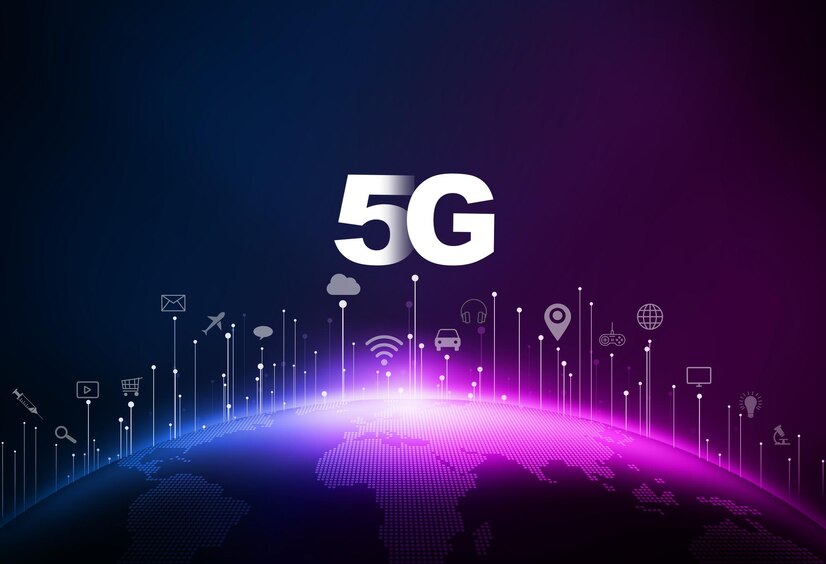The 5G Revolution: How It Will Impact Smart Cities And Urban Planning
by Ankita Tripathy Technology Published on: 07 November 2023 Last Updated on: 15 December 2023

Imagine a city where traffic lights synchronization takes place to ensure a smooth flow of traffic. Here, waste management is optimized to reduce pollution, and a network of smart cameras and sensors enhances public safety. This is the vision of the smart city, and the 5G revolution is the key to making it a reality.
5G is the fifth generation of wireless technology, a significant leap forward from its predecessors. It offers faster speeds, lower latency, and greater capacity, making it ideal for a wide range of applications, including smart cities.
If you’re looking for a mobile plan that will give you access to the latest 5G technology, look no further than the MATE sim only plan. With MATE, you’ll get unlimited data and calls on Australia’s leading 5G network, so you can stay connected and productive wherever you are.
How 5G Will Impact Speed Upgrades
The 5G network has undoubtedly brought in the paradigm shift in the reign of business. They are undoubtedly akin to a revolution so far as internet speed is concerned. Be it any sector, business, service, or education, wireless networks have been successful in bringing in significant speed. However, let us try to understand how the 5G will impact the speed upgrades. So, let us start the discussion here.
High Speed
When it comes to the 5G network, teh first thing that comes to mind is speed. Undoubtedly, this network exceeds the previous generation network by manifolds. Let us give numbers to explain it here.
The predicted speed of this network is upto 10 Gbps. This means there is an increase of around 100x if you compare it to 4G. Hence, with this very network, you can download a high-resolution movie from around seven minutes to only 6 seconds! Now that’s massive speed!
Low Latency
What is Latency? It measures the length that a signal takes to move from the source to that of the receiver. With the 5 G technology, you will have lower latency than with the 4G LTE. Agriculture, manufacturing, and even logistics are expected to get the benefit with the help of lower latency.
Increased Brandwidth
The amalgamation of the high-capacity network with the speed of the internet will create the potential for a large amount of data to be transmitted.
The architecture of the 5G allows greater optimization of networks. They allow a greater optimization of the network traffic and, at the same time, smooth handling. It means a large gathering in a stadium can stream the experience. Now, that is quite an improved system for sure.
How 5G Will Impact Smart Cities
5G will impact smart cities in a number of ways, including:
- Transportation: 5G will enable the development of new transportation technologies, such as self-driving cars and connected traffic systems. This will help to reduce traffic congestion and improve public safety.
- Utilities: 5G will enable the deployment of smart meters and other sensors to monitor energy and water consumption. This data can be used to improve efficiency and reduce waste.
- Public safety: 5G will enable the deployment of smart cameras and sensors to monitor crime and other public safety threats. This data can be used to improve response times and prevent crimes from happening in the first place.
- Healthcare: The 5G Revolution will enable the development of new telemedicine and remote healthcare applications. This will give people access to quality healthcare, regardless of their location.
- Education: 5G will enable the development of new educational applications, such as virtual and augmented reality. This will make learning more immersive and engaging for students.
Urban Planning And The Inclusion Of 5G

5G will also have a significant impact on urban planning. For example, city planners can use 5G data to:
Design More Efficient Transportation Systems:
5G data can be used to track traffic patterns and identify congestion hotspots. This data can then be used to design more efficient transportation systems that reduce traffic jams and improve travel times.
Plan For Future Growth:
5G data can be used to predict population growth and demand for services. This data can then be used to plan for future development and ensure that cities can meet the needs of their residents.
Create More Sustainable Cities:
5G data can be used to monitor energy and water consumption, air quality, and pollution levels. This data can then be used to develop more sustainable policies and initiatives.
Examples Of The 5G Revolution In Smart Cities
There are many examples of how most smart cities are already implementing 5G worldwide. For example, in Barcelona, Spain, 5G helps in powering a network of smart traffic lights that reduce congestion and improve air quality.
In Seoul, South Korea, leveraging 5G can power a network of smart parking meters, making it easier for drivers to find parking spots. And in Singapore, the inclusion of 5G helps in powering a network of smart cameras that monitor crime and improve public safety.
The 5G and Smart Cities For A Better Future
Ultimately, 5G technology moves the entire construction of cities from theoretical to practical. Ultimately, it draws the pathway for the development of new applications. They range from air quality, energy use, and traffic patterns to crowd management, emergency, and smart packing.
Smart cities use digital solutions, technology, and data. It can improve several key life quality indicators. Not only this, you have improved traffic and also the commute time. You have an accelerated emergency response time.
Ultimately, it may lead to better waste management, decreased healthcare costs, and decreased water consumption. Harmful emissions and unrealistic waste have huge potential.
All these developments pave the pathway to developing better liveable facilities in an environment of 5G. The opportunity is endless, and this is why the stakeholders related directly or indirectly with the 5G network’s help.
Conclusion
5G is a transformative technology that has the potential to revolutionize smart cities and urban planning. By enabling new applications and services, the 5G revolution can help to make cities more efficient, sustainable, and livable.
Read Also:







































































































